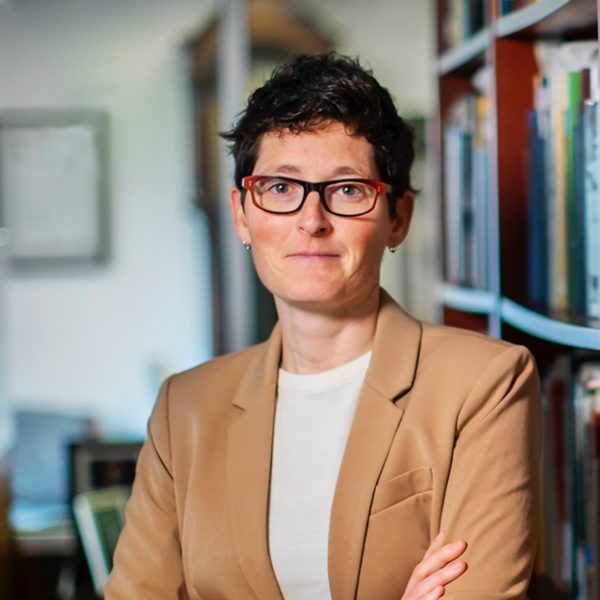
This is How I Got Here, a series where we chart the career journeys of technologists. Want to tell your story? Get in touch.
Marion Leary didn’t dream of being a nurse as a child. It took her a while to figure out what she wanted to be when she grew up.
After high school, Leary didn’t go to college, and instead started working with a variety of nonprofits. One of her jobs was as a case manager for a housing program for people with HIV, mental illnesses and addiction. At that job, she met a nurse whose passion and expertise inspired her to pursue the field herself.
“Getting to work with this person and watch her and learn from her, it made me realize that I wanted to go back to school or go to college and become a nurse,” she said.
And she did. Leary moved home to Philadelphia and pursued her undergraduate degree at Temple University, eventually transferring to Thomas Jefferson University because of its research-focused program to finish her bachelors in nursing.
Launching a career in tech
After graduating, she worked in a medical ICU for a year before taking a job as a nurse research coordinator with the University of Pennsylvania’s Center for Resuscitation Science. Her job focused on integrating technology and innovation — especially augmented reality — into the training for healthcare providers and lay responders.
“I did a lot around using social media and science and health communication techniques to improve education and outreach and awareness of resuscitation topics,” she said. For instance, she studied how people responded when somebody went into cardiac arrest. It’s known that most people experiencing cardiac arrest outside of a healthcare setting do not receive CPR, so her team was trying to find a better way to educate people with the hopes that they would respond if they were faced with an emergency. They thought if they could integrate the sensory components of virtual reality or AR with CPR training, it could create a more realistic training that could hopefully translate to a real-life situation.
Leary even started a now-defunct company around this idea — ImmERge Labs. At the Center for Resuscitation Science, she eventually worked her way up from research coordinator to director of innovation research. She came to realize that nurses are innovating all the time, balancing patient needs with the urgency and complexity of medical care.
“They were creating solutions to problems in the healthcare setting outside of the healthcare setting, but they didn’t really realize they were doing it,” she said. “I really felt strongly that for health and healthcare innovation to flourish, nurses had to be driving those innovations, and they had to be leading.”
(Oh yeah, and she won the Philly Geek Awards’ coveted Geek of the Year honor in 2017.)
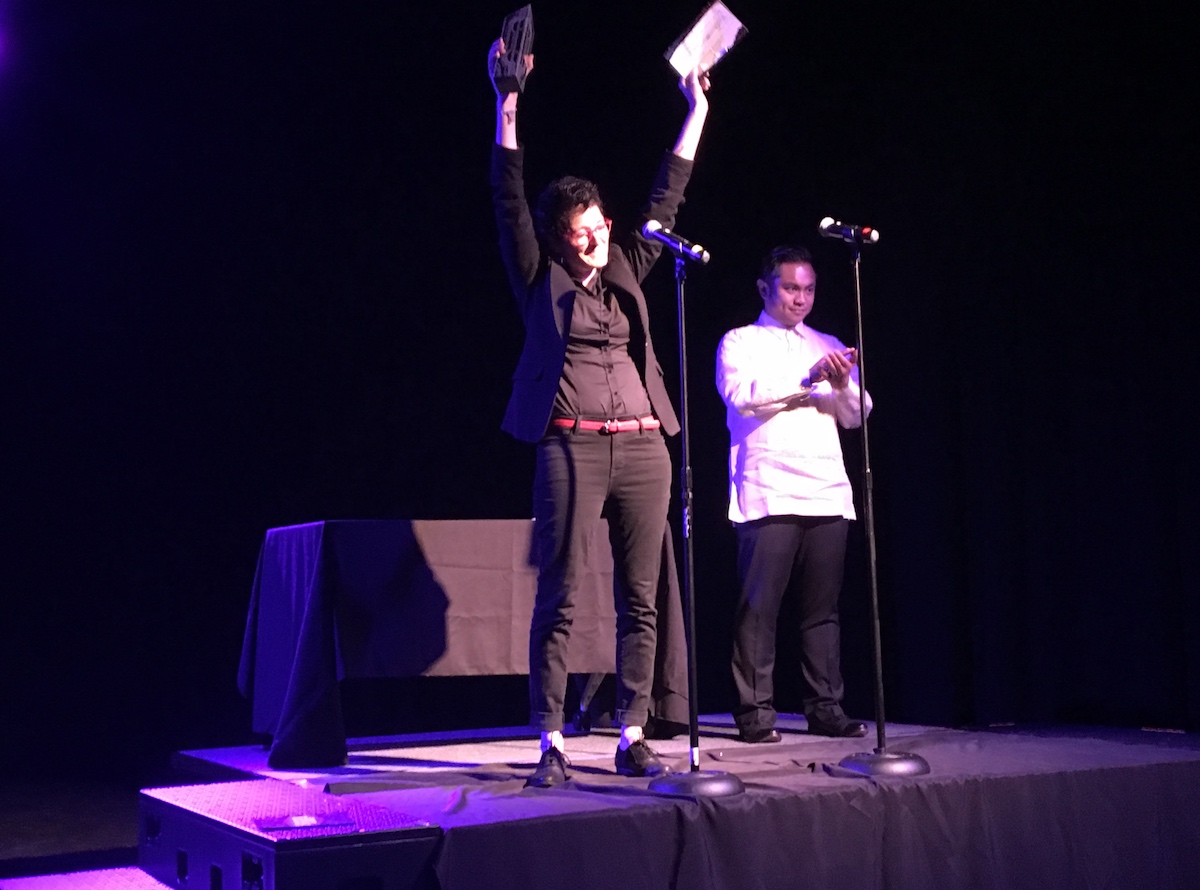
Marion Leary celebrates her 2017 Geek of the Year win. (Technical.ly photo)
Leary is now the first director of innovation at Penn’s School of Nursing, a job she has been doing for about three years. There, she educates students, faculty and nurses at large about innovation and human-centered design, and what that means for nurses and healthcare. She teaches a course at Penn and runs an accelerator that helps students and faculty develop their own early-stage solutions to patient challenges — say, a bracelet designed to prevent elopement in children with autism.
She also sits on the American Nurses Association’s Innovation Advisory Board, is a founding member of the Society of Nurse Scientists, Innovators, Entrepreneurs and Leaders, and hosts a podcast called Amplify Nursing. Through that project, she interviews the likes of Anthony Scarpone-Lambert, the Penn grad and nurse whose Lumify Care startup created a hands-free device to illuminate a workspace while decreasing patient sleep disturbances.
In addition to her role at Penn Nursing, Leary is working on a Ph.D. with a dissertation about human-centered design and design thinking in healthcare and nurse-led innovation.
“A lot of my job is event production and programming, all with the same goal of educating nurses and others about nurse-led innovation and health and healthcare innovation,” she said, “but also amplifying nurses as leaders in that space.”
Why nurse-led innovation?
According to Leary, nurses interact with every product or process that touches a patient, and they are the foundation of almost everything that happens in healthcare. She said nurses like to identify the problem and find a solution, so it makes sense for them to do innovative, solutions-based work.
Leary also wants other nurses to know all the options they have — that they don’t have to stay in a hospital to use their degrees. She said a majority of nurses work in a healthcare setting, but nurses are leaving the profession in huge numbers amid the pandemic. For those who want to leave bedside care for whatever reason, there are opportunities in tech, innovation and research available, she said.
“I would argue that innovation and technology is integral to whatever you’re doing and there’s not just one space where it’s needed,” she said. “You don’t have to go into a nursing innovation role to be a nurse innovator. You take the skills that you learn and you apply them to wherever you’re practicing.”
Yes nurses are at the bedside👨🏼⚕️
but we are also in the classroom 👨🏾🏫
and in the courtroom👩⚖️
and the research lab👨🏽🔬
and the military👮🏾♀️
and in the boardroom🧕🏾
and in congress👩🏾🦱
We are in all these places and more! 🌏
📢 #AmplifyNursing #WorldEmojiDay— Marion Leary MSN MPH RN (she/her) 🏳️🌈 (@marionleary) July 17, 2019
Throughout her career, Leary said she’s had a lot of ups and downs, a lot of lives saved and a lot of lives lost. She said there isn’t one moment that stands out as her motivation for pursuing this career, but she’s grateful for it in its entirety.
“I say this all the time: I never could have thought when I was little about what I’m doing now. Like, it never could have come into my mind because I had no idea how much the nursing degree would open me up to things that you just don’t associate with nursing,” she said. “It’s just been an incredibly fulfilling career that I never could have imagined.”
Sarah Huffman is a 2022-2024 corps member for Report for America, an initiative of The Groundtruth Project that pairs young journalists with local newsrooms. This position is supported by the Lenfest Institute for Journalism.Join the conversation!
Find news, events, jobs and people who share your interests on Technical.ly's open community Slack
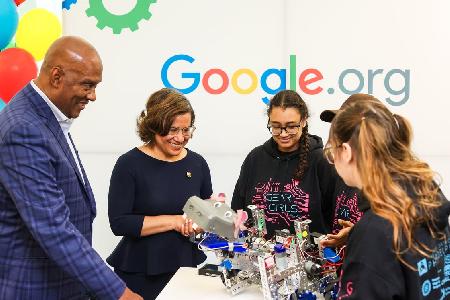
Philly daily roundup: What's next for ACP; Cheese dispensary tech; Philly Tech Week
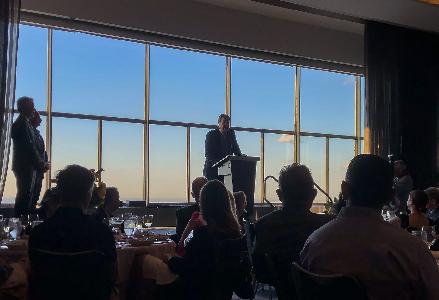
Philly daily roundup: Minecraft in a Philly school; PTW kicks off; Tech and art happy hour
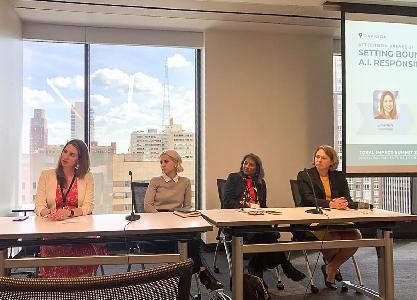
Philly daily roundup: Philly's top innovation leaders; City buildings go solar; PTW kicks off on Friday


